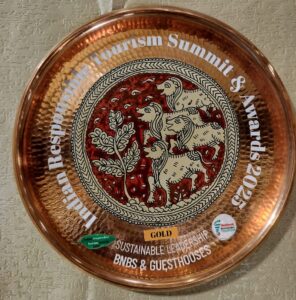If you wish to learn how to improve your diet, start by purchasing food from restaurants, grocery stores, and meal prep services that buy their meat and produce from nearby farms. Popularity ebbs and flows for diet trends like plant-based, low-carb, raw eating, Whole 30, prebiotic, and Mediterranean diets. However, buying groceries and preparing meals from local farms can substantially impact your health, which should be discussed more frequently.
Our visitors to our farm love eating the food because it is locally sourced and healthily cooked in the traditional style.
There is great value in doing the extra study necessary to identify stores where you may buy locally farmed food.
Eating food from farms is healthier.
The most obvious way of eating and preparing meals is by growing and using local produce. Local food is healthier. Contrary to popular belief, the time it takes for your food to travel from the farm to the market and finally to your table affects the quantity of nutrients it contains.
As soon as fruits and vegetables are harvested, a decomposition process begins in which their nutrients are destroyed. When you get around to eating them, they will have fewer nutrients because you put off eating them longer. We are very particular about the vegetable we grow and use in our dishes.
Fresh food from a farm taste better.
Yes, the food you can find locally will be healthier for your body. We usually eat for pleasure in addition to merely fuelling our bodies. From local food, we make regional dishes. Regional cuisine does not taste better. It is one of the best ways to maintain your health. Eating food that is sourced locally benefits your community. Committing to eating locally will be advantageous for everyone.
The average large-chain supermarket or multinational industrial farm will survive fine without your patronage. Consuming food from farms like ours benefits you by helping you detox from the fast-food culture. Eating food from local sources is better for the environment.
The truth is that preparing meals with ingredients from nearby farms also has a good effect on the soil.
It takes a lot of energy and fuel to transport all the food from big farm factories to supermarket stores in other states and nations. These things have a huge carbon footprint, as you might expect. Supporting a business that uses less shipping and, as a result, produces fewer greenhouse gases that harm our environment, you can support local farms by purchasing their products.
Farm Fresh Food Maintains Your Connectivity
When you stop to consider it; purchasing produce from large, worldwide supermarket chains thousands of miles away is a relatively new practice. For thousands of years, humans had a far closer bond with their food, and as a result, with their surroundings and other people. You get to know the neighbourhood farmers when you purchase locally. You gain knowledge of the land, the seasons, and the food that grows on it. It offers the chance to learn more about nature and agriculture, enabling you to connect with your food.
Safer Consumption
Recently, customers have begun looking for food goods that are transparent and safe. Local food has emerged as the essential component in finding food free of toxic pesticides, herbicides, and fertilisers that are usual in traditional farming practices as a manner of achieving this. Consuming them can lead to significant health issues like cancer and headaches. Because their products do not need to travel far, small-scale farms typically do not utilise chemicals, food additives, enzymes, flavourings, and preservatives to help improve their foods. They also rarely package their products in materials that may contain chemicals. Growers will likely be receptive to sharing their ideas and practice, so do not hesitate to ask questions.
Shorter Food Supply Chain: Produce purchased locally is often plucked 24 hours after purchase. Less handling during the distribution process means fewer steps from farm to plate, which reduces the risk of bacterial or viral contamination. Our kitchen is full of vegetables and fruits, which we grew less than 500 metres away. Food that does not have to travel as far has a higher nutritional value and, not to mention, better flavour because produce can ripen naturally.
Nutrient Dense: Choosing fresh foods implies selecting whole and little processed foods. Critical nutrients like potassium and magnesium, phosphorus, and vitamins C and A can all be found in higher concentrations in food harvested at the height of ripeness. Fruits
and vegetables include antioxidants and polyphenols that are extremely good for your health, especially when you eat various fruits and vegetables. The consumption of “empty calorie foods”—frequently heavy in sodium, saturated fat, and sugar—is reduced when processed food is substituted with whole foods. This can enhance the health of your heart, blood, brain, gastrointestinal system, and vision.

Physical and Social Possibilities: Supporting local farmers opens opportunities for community-supported agriculture, farmers’ markets, and perhaps even learning to grow your food, which can be more physically active than buying conventional foods. Gardening challenges may be physically demanding and informative, whether in your own house or at a local farm. Additionally, enhancing the health and suppleness of the mind while learning and practising new abilities can help.
You can book your stay and visit all the attractions that are close by.
Please click on the below link to book your stay. https://vaksanafarms.in/booking/







